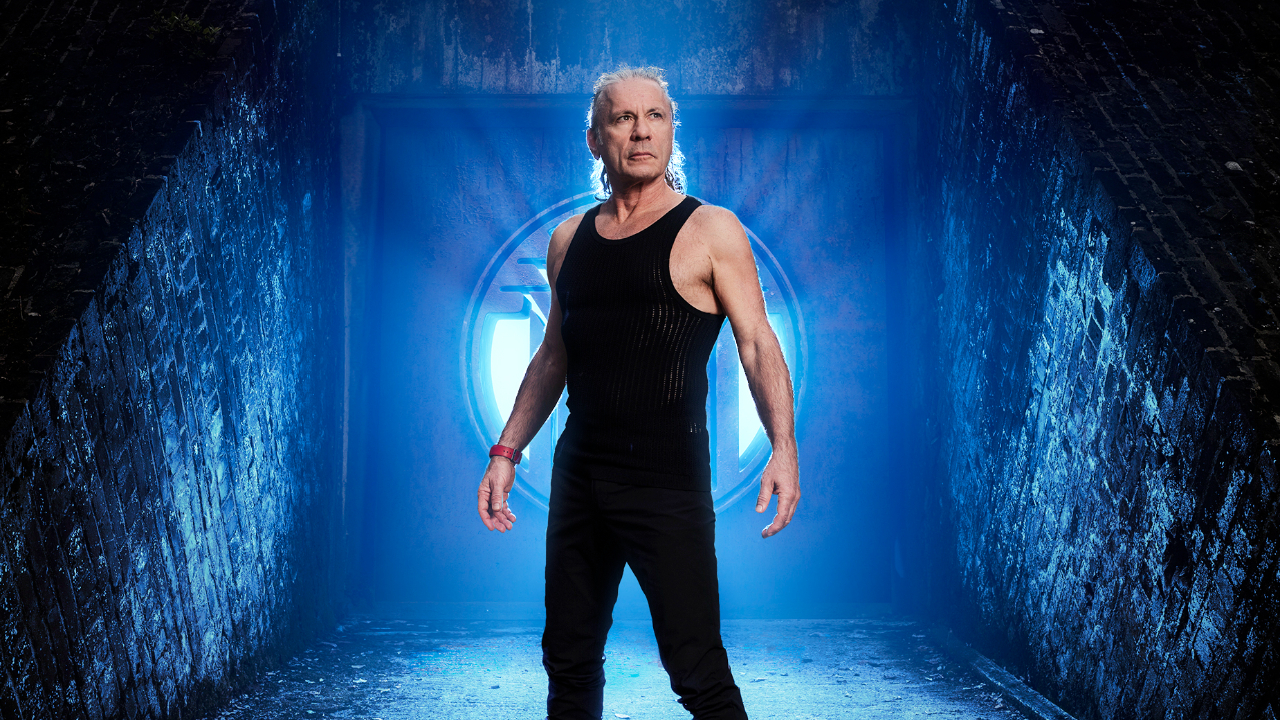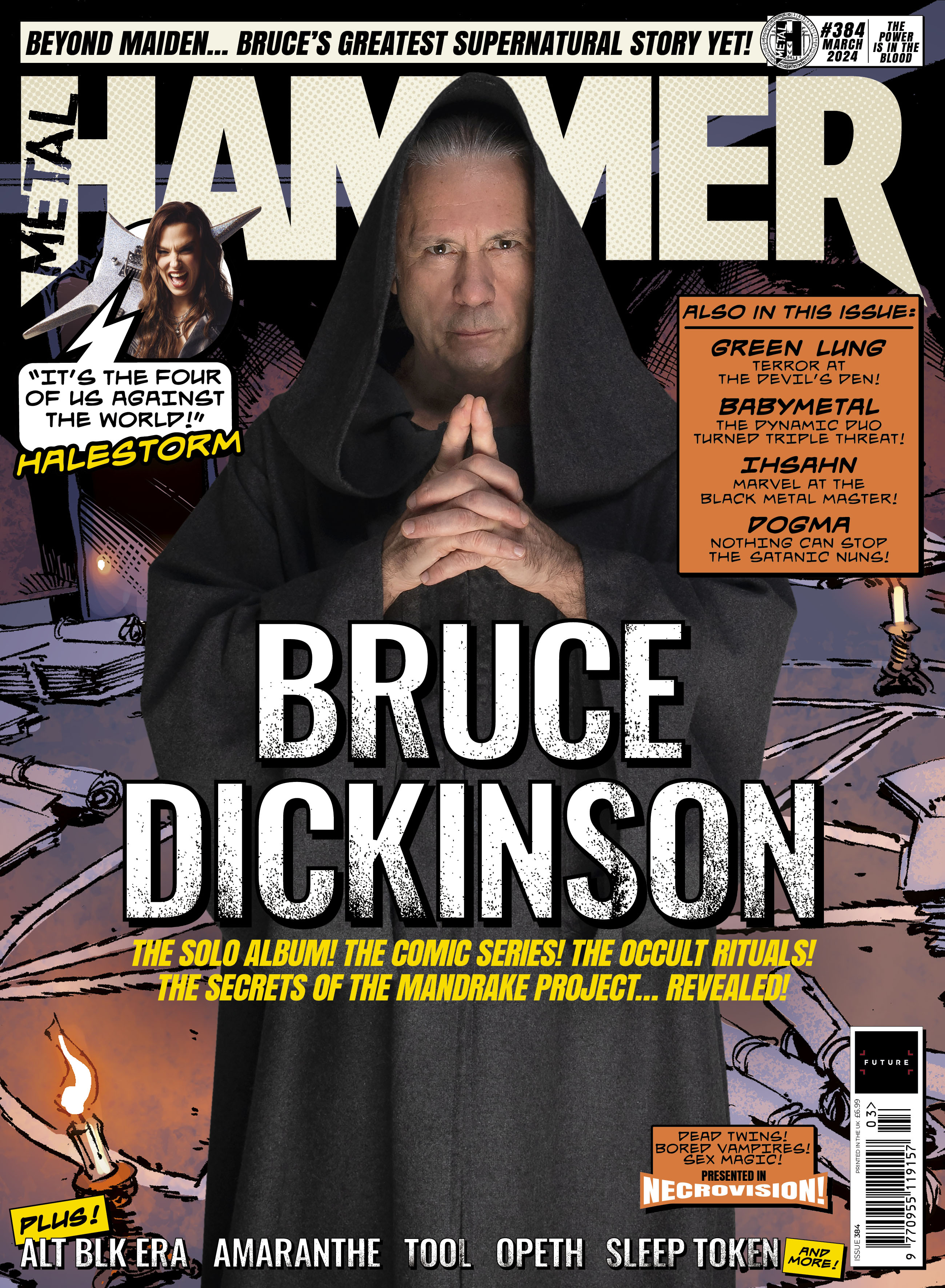
After splitting from Iron Maiden in 1993, Bruce Dickinson’s solo career ascended to a stunning creative apex with 1998’s The Chemical Wedding, a heavyweight William Blake concept opus providing sharp relief against the contemporaneous Maiden disc, low-point Virtual XI.
Hatchets have long since been buried, and Bruce’s creative focus has remained Maiden-centred for nearly 20 years, assimilating his eccentric force of personality into a six-way endeavour. Unloosed again at last from these democratic checks and balances, Bruce’s extraordinary voice – in every sense: larynx, character and attitude – resounds from guitarist Roy Z’s spectacularly thick, fervid production.
The singer has rarely sounded more assertive, up-front and in your face, while his commitments to narrative storytelling and wide-open imagination have seldom reached higher, urging his vocals to new levels of expressive emotion and dramatic control.
As with The Chemical Wedding, there is a powerful unifying sweep to the album, even if the concepts can feel quite cryptic and abstruse, with meanings and nuances that need to be unlocked like new levels of a game quest. Videogames, rather than movies, are a plausible pointer to the album’s soundtrack-like impulses. Atmospheric noises and symphonic flourishes burst and brood with dark, grainy intensity, making a virtue of their synthetic origins.
Crucially, these densely layered, orchestrated soundscapes and sophisticated arrangements are frequently counterpointed against direct, stripped-back volleys of classic metal heroism. Killer tunes like Many Doors To Hell, goth-tinged headbanger Resurrection Men and the nonballadic half of Shadow Of The Gods impel delirious raised fists with their spunky NWOBHM riffing and meaty, screamalong choruses.
Bruce’s best solo work has always skewed towards heftier tones. Pants were soiled in ’98 by King In Crimson’s Obituary-heavy guitar sound, and The Mandrake Project rapidly pulls its weight, opening advance cut Afterglow Of Ragnarok getting underway with a marauding riff that’s half Swedish true metal sword-wavers Grand Magus, half UK death metal warhorses Bolt Thrower.
One fascinating, unprecedented surprise is the remake of Iron Maiden’s If Eternity Should Fail, here ominously retitled Eternity Has Failed. Shorter, slower, heavier and darker than the song we’ve known and loved for nine years, this is technically its original incarnation, a measure of how long this LP has taken to come together. Either way, it’s a great song, arguably besting the original by substituting a real flute for Maiden’s synthesised trumpet intro.
The Mandrake Project demands and rewards total absorption into its kaleidoscopic sound picture. Multiple strands of Bruce’s solo career are drawn together throughout. There’s the accessible hard rock of 1990’s Tattooed Millionaire, the ambitious versatility of 1994’s Balls To Picasso, the snappy cosmic prog of 1996’s Skunkworks – as well as the profound, elegant metal classicism that is the man’s primary skillset – with lyrical references to old songs adding to the cohesive, celebratory vibe.
Technically, it’s an hour long, but The Mandrake Project is so filled with ideas it seems to fly by in no time, yet still feels like an epic journey.
The Mandrake Project is out March 1 via BMG. Bruce Dickinson tours the UK from May 16. For the full list of dates, visit his official website.
Read more about Bruce Dickinson's return to solo work in the new issue of Metal Hammer, on-sale now.








